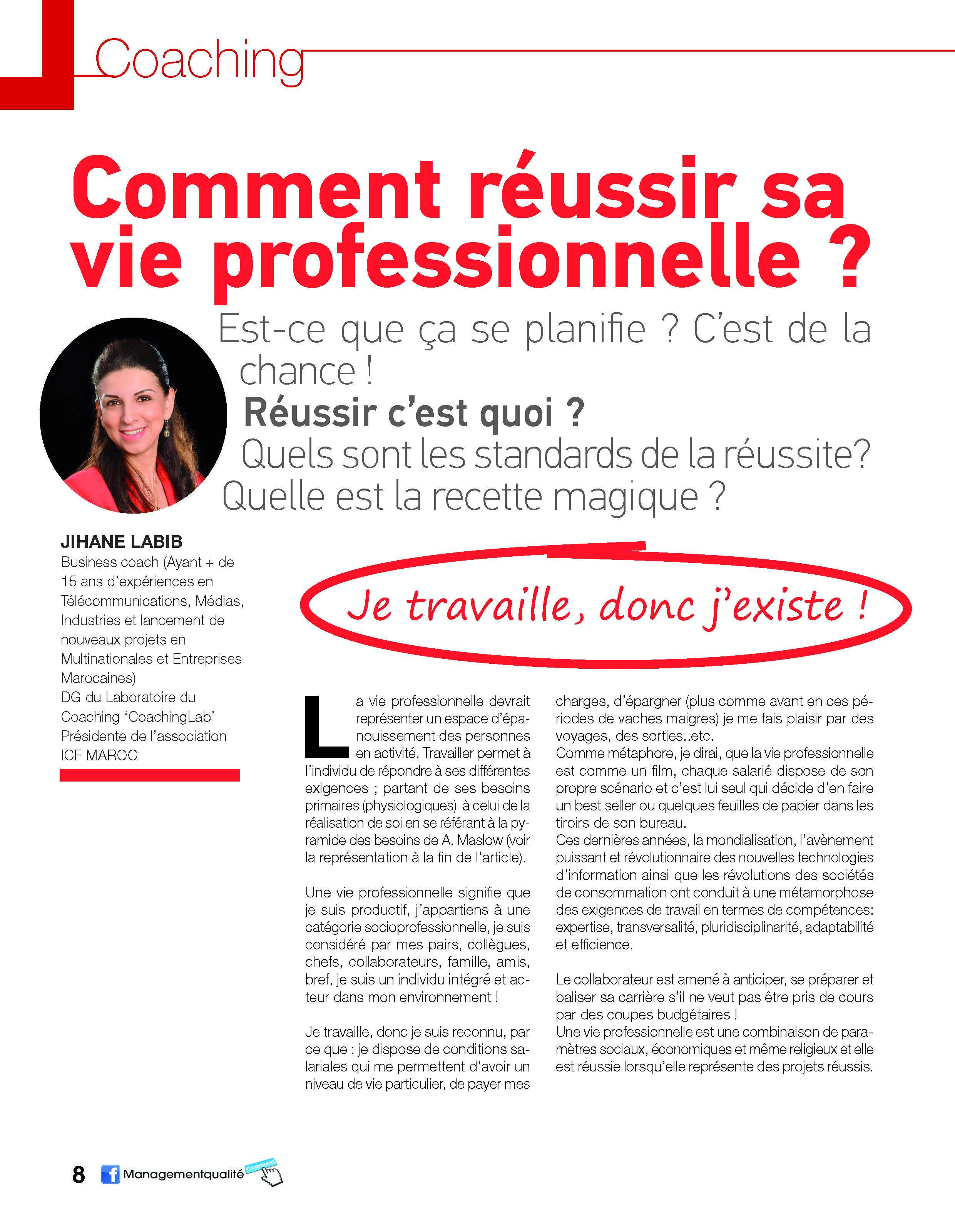Is Career Success a Matter of Luck — orPlanning?
What does it mean to succeed professionally?
What are the standards of success today?
Is there a magic formula?
Let’s begin with a truth: “I work, therefore Iexist.”
Your professional life should be a space forpersonal fulfillment. Work allows individuals to meet a range of needs — fromthe most basic (physiological) to self-actualization, as outlined by Maslow’shierarchy of needs.
Being professionally active means:
· Beingproductive
· Belongingto a socio-professional group
· Beingacknowledged by peers, colleagues, leaders, and loved ones
· Ultimately,being an integrated actor in society
Why Work Matters
Working means:
· Youare recognized and valued
· Youearn a salary that supports a certain standard of living
· Youpay your bills, maybe save (though less nowadays!), and enjoy life: travel,social outings, self-care
Metaphorically, a professional life is like afilm. Each person is writing their own script — and it’s up to you whether yourstory becomes a bestseller or a stack of forgotten notes in a desk drawer.
In recent years, globalization, the rise oftechnology, and consumer culture have dramatically changed the skills requiredin the workplace:
You now need expertise, agility, multidisciplinary thinking, and efficiency.
If you want to avoid being caught off guard byrestructuring or layoffs, you must anticipate, plan, and shape your own careerpath.
What Does a Successful Career Look Like?
Your professional life is a blend of social,economic, and even spiritual elements, and it becomes a success when it alignswith well-executed projects.
At Coachinglab, we use the “Professional LifeProcess” by Jihane Labib, which includes several key steps:
Step 1: Conduct a Personal Assessment
Where do you stand today? What are your:
· Majoraccomplishments?
· Strengthsand soft skills?
· Areasfor improvement?
A coach may use various tools like skillsassessments, personality tests, or behavioral diagnostics to get a fullpicture.
Step 2: Define a Personal Vision
What do you truly want to achieve?
How do you envision your future?
You alone must decide, not your family, spouse,or friends.
Step 3: Reflect on Key Learnings
From the current state, what success factorsand warning signs can you identify?
Step 4: Refine the Vision
Is your vision clearly defined and aligned withyour values?
Step 5: Build a Strategy
What is your plan to achieve this vision?
What are your resources, key dates, and milestones?
Step 6: Scan the Context
What obstacles might you face in yourenvironment?
What opportunities can you leverage?
When to Start?
This process can begin at any age, but earlieris better. Ideally, during school years, before choosing a specialization. Thatsaves time and energy.
Key checkpoints:
· Age22: Prepare for your first job
· Age30: Explore mobility, career change, or sector switch
· Age50: Reflect and prepare for retirement, possibly moving into consulting orstrategic roles
What Defines the Most Successful Careers?
They are built by TALENTS who fully expresstheir potential.
So:
· Believein yourself
· Unleashyour potential through your ideas and projects
· Trustyour dreams
This is what I work on with:
· Youngentrepreneurs
· Master’sstudents
· Managersnavigating career changes
In Morocco today, we’re witnessing a newgeneration of young leaders determined to shape their careers differently,leave a legacy, and make a positive impact on their present and future.
It’s a great source of pride for our country!
Lessons from a Classic
So many books discuss success and wealth, buthere’s a key insight I’ve retained from Napoleon Hill in his bestseller “Thinkand Grow Rich”:
"...heinterviewed more than 500 of the most successful Americans, and they allconfirmed their greatest success came immediately after a failure that seemedhopeless. Failure, it turns out, often masks success that is much closer thanit appears."
Final Thought: Success Is Personal
To me, succeeding professionally means:
· Realizingyour personal dream
· Believingin it 1,000%
· Persistingthrough obstacles
· Stayingcommitted to your life mission
· Aligningyour actions with your core values
When your career has meaning, it fuels yourdaily motivation.
“Everymorning, I’m excited to wake up and get to work because it has MEANING for me.”
That is the common expression of those who have succeeded in life.
To your success!


